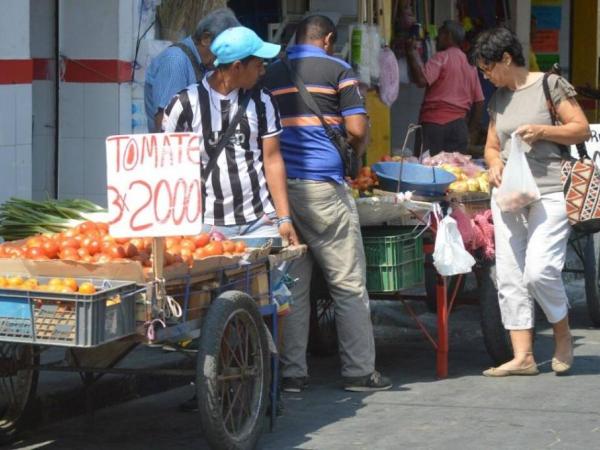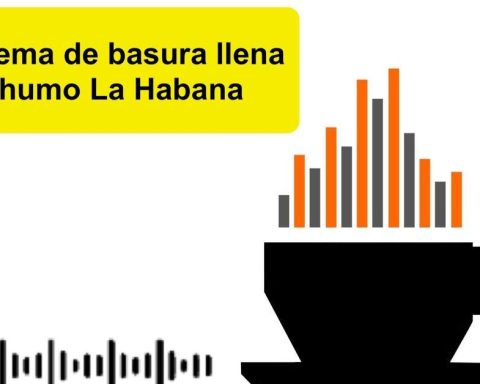To say that Colombia is a country of entrepreneurs and where everyone who looks for it, finds a way to survive, is a truth that has two sides, in which on the one hand the drive of the people and their resilience in the face of the unforeseen events that may arise, but the lack of opportunities is also evident.
A recent World Bank report reviewed the state of poverty in Colombia from its different aspects and found that, in terms of business, entrepreneurship is the only way to overcome poverty and that although there are great success stories, A good portion of these people barely make ends meet.
More news: These are the regions that would stand out for the economy of 2024
Starting from the fact that not all Colombians have the same possibilities of escaping poverty, the report maintains that poverty rates differ significantly between groups and territories and that the local market stands out due to their regional well-being gaps compared to OECD countries.
“Indigenous populations have poverty rates that are almost double those of non-ethnic groups, rates that have shown a much slower reduction: as of 2021, the reduction was 1.9 percentage points for indigenous populations compared to 7.5 for groups without ethnic affiliation. These differences in poverty rates are based on very different access and quality of services and assets between groups and territories,” they explained.
Informality.
EL TIEMPO Archive
The absence of the State, the presence of illegal armed groups, corruption and the lack of programs that generate development that takes advantage of the capacities of the territories and thus does not fall into standard formulas that apply to some and not to others, are part of the causes why this type of thing happens for the Bank. World.
Business out of necessity
To better explain the cycle of inequality, it can be said that not having access to quality education means that people do not develop the skills that the market needs and because of that, their chances of getting a stable and formal job are greater. lower than those of the others.
This without taking into account other barriers that widen the gaps such as the isolation of certain regions, the fact that a large part of the large industries are in the main cities, mostly in the center, and that the lack of road connectivity also influences, generating a scenario in which many people have no choice but to opt for a business that gives them a livelihood.
Also read: Mintransporte installs a work table with transporters to evaluate agreements
“Millions of families depend on income from small businesses, generally unproductive, rather than from salaried jobs. Microbusinesses, those with nine or fewer employees, constitute 99% of the country’s business fabric and 66% of total employment,” they said from the World Bank.
Likewise, they stated that “all these microbusinesses arise from a business opportunity in the market (of opportunity), approximately half arise because entrepreneurs have no other alternative income (of necessity).”
“These microbusinesses of necessity are usually created by entrepreneurs from poor homes (46% compared to 30% of opportunity businesses) and their productivity is lower. Spatially, the productivity of microbusinesses is lower in the poorest places: productivity in certain departments, such as Antioquia, Risaralda or Bogotá, is more than double that in Cauca or Córdoba,” they reported.

Informality.
EL TIEMPO Archive
Simply put, while three out of every 10 businesses arise as part of the dynamics of the market and economic development, four are the result of necessity and there, the value added per worker is less. of $480,000, while in the former this indicator is above $540,000.
“Around two out of every three microbusinesses in Colombia are classified as weak according to the Microbusiness Robustness Index and also show lower productivity and a higher percentage of owners in a situation of productive exclusion,” the report says.
Meanwhile, depending on the type of municipality, the percentage of microbusinesses weak increases from 54.6% in large cities and agglomerations to more than 80% in predominantly rural municipalities, making it clear that the lack of institutional offer and development programs has a lot to do with it.
Other news: It’s official: Government sanctions law that allows unilateral divorce in Colombia
Gender gaps
Another front that the World Bank reviewed regarding the state of microbusinesses and their disparity in the national geography had to do with the gender gap, given that this reality is also proof of the lack of opportunities that affects them.
“Women also have less access to other sources of income, since 37% of microbusinesses have a woman as owner. Additionally, the percentage of female-owned microbusinesses classified as weak it is 65%, while in those owned by men it is 68%,” they reported.
In the case of the value added per worker, the report shows that in female-owned microbusinesses it is 60% of that of male-owned microbusinesses, which could be related to the greater burden of domestic tasks, which increase the cost for them.

What did the Government say about poverty?
Jessika Rodríguez – Portfolio.
“Barriers to market participation are also observed in areas where armed groups imposed regulations that made it difficult to enter the market with a microbusiness,” they noted.
The most worrying thing of all is that for the World Bank, the institutions are not fully prepared to eliminate opportunity gaps, including territorial ones, since there is overlapping of powers between the different levels of government – without clear definition of functions or accountability. .
This, they concluded, also has relevance to the challenges facing income generation and fiscal autonomy and management, which must also encompass the lack of coordination and association and the need to end uniform policies. in many cases, they do not take the potential of the territories as a reference.


















